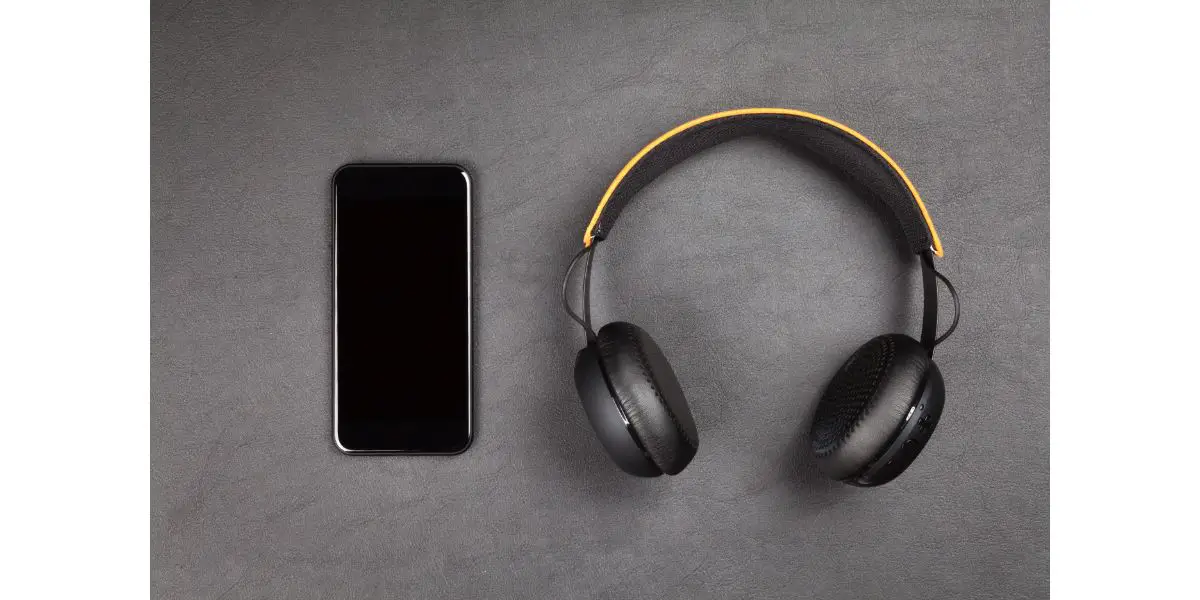Disclaimer: This post may contain affiliate links, meaning we get a small commission if you make a purchase through our links, at no cost to you. For more information, please visit our Disclaimer Page.
Using your Bluetooth headphones for more than one purpose is one of the main reasons why they may sound bad on calls. Since Bluetooth connections take up a lot of bandwidth, the headphones may be unable to keep up if you’re also listening to music.
Table of Contents
Why Bluetooth Call Quality Isn’t Great
There are several reasons why your Bluetooth headphones may sound bad on calls. Let’s go through the most common ones.
Bluetooth Devices Have Limited Bandwidth
In most cases, experiencing poor audio quality during phone calls, or even when simply listening to music, happens because of the Bluetooth connection itself.
Bluetooth is specifically designed to be a low-power wireless connection with a 2.4 GHz bandwidth. This allows it to strike a balance between range and transmission rate.
For that reason, you can’t expect some Bluetooth headphones to provide you with high-quality audio. The limited bandwidth can cause issues like sound delays and poor sound quality.
But why does the limited bandwidth only rear its head when you’re on a call? Shouldn’t it affect your music too?
The answer might lie in the fact that your headphones have a microphone. When you’re on a call, you’re not listening to but also transmitting audio.
The Bluetooth connection between your phone and your headphones has to take care of both things, and the microphone takes up a good chunk of the bandwidth. This leaves an even smaller bandwidth for the audio you’re listening to.
This shouldn’t be a factor if you’re only using your headphones to listen to a call and your phone’s microphone is active. This is obviously the case for headphones that don’t have a microphone, but you can also switch to the phone’s microphone in the middle of a call.
You’re Using the Headphone for More Than One Purpose
Advancements in Bluetooth technology have allowed users to use their Bluetooth devices for several activities at the same time, such as playing music while on a call. However, when you do this, you’re more likely to run into issues.
If you think your Bluetooth headphones sound bad on calls, try to see if it happens whenever they’re being used for more than one purpose. If that’s the case, then it’s best to stick to just one activity.
This is also where audio profiles come in. Bluetooth headphones come with specific audio profiles, which will determine their functionalities while in use
If the headphone you’re using isn’t compatible with the Headset Profile or Hands-Free Profile (the audio profiles that allow wireless phone calls), then it that may be the reason why the audio sounds bad during calls.
Your Current Device Is Not Compatible With Your Headphone
If your phone, laptop, or tablet is not compatible with your headphones, the sound quality will be affected. Recent headphone models are compatible with most devices, making this a very uncommon reason, but you still shouldn’t cross out the possibility.
Note that incompatibility issues aren’t limited to your device’s specifications. We’re also talking about whether your device supports the Bluetooth version used in the headphones.
There are five main versions: Bluetooth 1, 2, 3, 4, and 5. If your device doesn’t support the newest Bluetooth version and you bought a new pair of headphones, you may experience low-quality sound and other issues.
Something Is Interfering With the Headphones’ Bluetooth Connection
Bluetooth interference happens when another device is interfering with the signal that your wireless device should be getting. Things like WiFi routers, lighting equipment, and microwave ovens are the most common sources of Bluetooth interference.
To know if you’re dealing with signal interference, check if you’re experiencing any of the issues below:
- You hear static sounds when using your Bluetooth headphones.
- Your headphones’ audio randomly cuts.
- It usually takes multiple tries before you can successfully connect your Bluetooth headphone to your device.
- The audio is often delayed.
- Your call audio is choppy.
If you think interference is what’s causing the issue, you should check out our article on the topic.
You’re Using a Low-Quality Bluetooth Headphone
If you have ticked off all the other reasons we talked about in the previous sections, then there’s one likely cause left: you’re using low-quality Bluetooth headphones.
This is probably the case if you bought your headphones solely because they’re cheap or you simply didn’t research the product before purchasing it.
Since low-quality Bluetooth headphones often have more limited capabilities and specifications compared to average and high-end models, it’s a given that you won’t get the best sound quality, whether you’re on a call or listening to music.
On the same note, keep in mind that many phones don’t have high-quality microphones. You shouldn’t hold call audio to the same standard as the music you listen to.
Troubleshooting Poor Call Quality in Bluetooth Headphones
Let me walk you through some troubleshooting tips to help you trace the specific issue you’re dealing with.
- Check for device incompatibility. Read your headphones’ manual, and find the Bluetooth version it’s using. Then, check if that version is compatible with your device.
- Rule out Bluetooth interference. Check if your headphone is near other devices that use WiFi and other wireless technology, like your router and radio. You should also keep an eye out for objects made out of metal, such as microwave ovens and metal doors.
- Determine if you’re using low-quality headphones. Try to look up reviews about your headphones. If it seems like you’re not the only one experiencing poor audio quality, then you’re most likely using low-quality headphones.
It’s best to find out the exact reason behind your headphones’ poor call audio quality before tweaking anything or doing any kind of quick fix. It will save you a lot more time, and will also keep you from possibly damaging your device.
How to Improve the Call Quality of Your Bluetooth Headphones
Here are some things that you can try to improve the audio of your calls:
- Use your headphone for only one purpose at a time. If you’re going to take a call, stop playing any media in the background first.
- Manually change your headphone’s Bluetooth codec. Do this by navigating from your phone’s Settings, System, Developer Options, and Bluetooth Codec. Choose either aptX or SBC for the best audio quality.
- Invest in better headphones. You don’t have to go all out and buy audiophile headphones. Even just a modest increase of $20 in your budget will make a difference, especially if you bought your headphones for less than that amount.
- Remove any device that may be causing Bluetooth interference. Reconnect your Bluetooth headphones and see if the sound quality improves.
- Try pairing your Bluetooth headphone to another device. This will let you determine if the issue lies in device incompatibility.
If none of these options work, I recommend reaching out to the customer service of your headphone brand. If you got a faulty unit and are still under warranty, you may be able to change it for a new one.
Final Thoughts
Your Bluetooth headphones may sound bad on calls for several reasons, including the limited bandwidth of the Bluetooth connection, lack of support for more than one audio profile, device incompatibility, having low-quality headphones, and Bluetooth interference.
There are various ways you can improve the call audio quality of your Bluetooth headphones, but it’s best to know what the cause is before doing anything.


